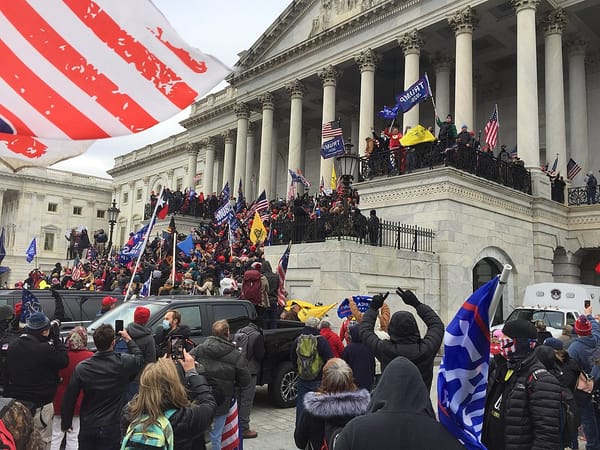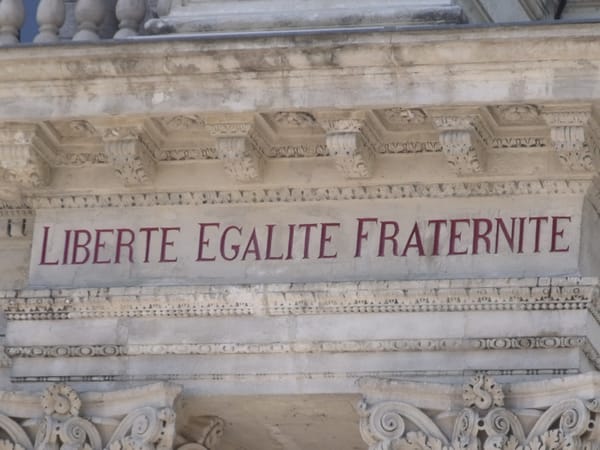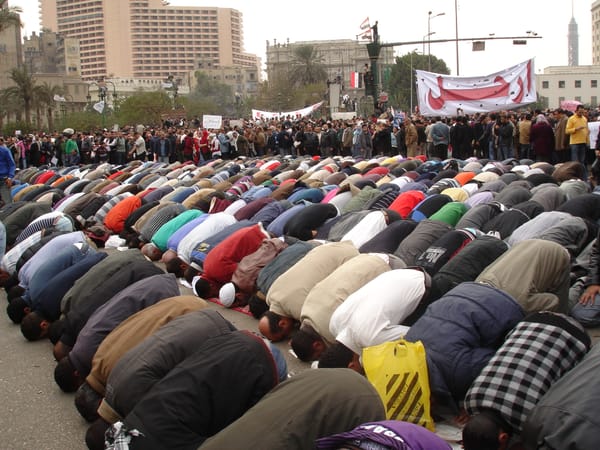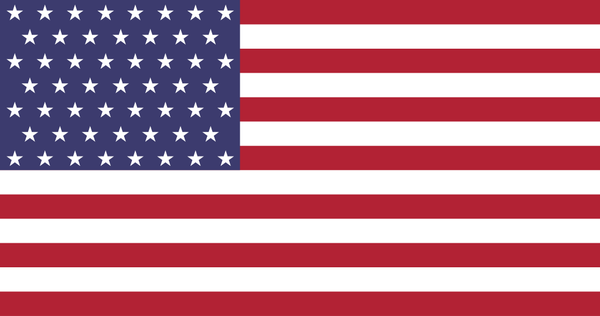Sportswashing: What It Is, Who Does It, and How to Stop It

Sportswashing has received significant attention recently, particularly due to the rise of the Saudi Arabia sponsored LIV Golf and the imminent Men’s football World Cup to be held in Qatar. The chief football writer at The Independent, Miguel Delaney, has conducted an admirable crusade raising awareness of sportswashing, and the Norwegian venue Josimar has published hard-hitting investigative reporting on the scope of the problem. Yet many people—even those interested in sport or politics—still haven’t heard of sportswashing and even fewer people have a clear idea of exactly what sportswashing involves and why it is wrong. This is even true amongst sports researchers, as there is little scholarly work on the topic. Our aim here is to set out what sportswashing is and explore why it is wrong.
As we’ve argued, sportswashing is an attempt to distract from, minimize, or normalize wrongdoing through engagement in sport, not unlike whitewashing, although more specific in its methods, and also related to greenwashing, although not similarly restricted in its scope to environmental sins. This is importantly reputational: sportswashers want other people to care less about their wrongdoing without having to address that wrongdoing through reform and reparation. Whether this is because they want to be seen as desirable destinations for tourism or unproblematic partners for trade, the sportswasher wants to make sure that the bad things they are doing don’t negatively affect them.
Thus the allegations against Qatar for hosting the World Cup and Saudi Arabia for setting up the LIV tour and buying Newcastle United. Qatar has an abysmal record on workers’ rights. Though there is debate about the exact number, many workers have died directly as a result of constructing stadiums for the World Cup.This isn’t just the occasional unfortunate accident, it is the result of awful working conditions. Workers are forced to work in the sweltering heat, and many are immigrants who have few social rights. Though there have been claims that the World Cup (and the attention around it) has in fact inspired reform, there are still serious allegations that working conditions are deeply exploitative. Saudi Arabia’s most notable non-sporting news in recent years has been the assassination and dismemberment of the journalist Jamal Khashoggi, a longstanding critic of the Saudi regime. This was not a one-off event, though, but part of a pattern of human rights abuses.
So, the allegation that these states are engaged in sportswashing is that they are getting involved in sports to displace the negative reputation they have received because of these wrongs by creating more positive associations. The theory is that rather than thinking about workers’ rights when we think about Qatar, rather than thinking about Khashoggi when we think about Saudi Arabia, we will think about the glorious World Cup, or the fantastic golf tour they have set up. Or, if we are Newcastle United fans, we will come to love the Saudi owners, especially if they bring success—you only have to look at a section of Chelsea fans cheering for their Russian-regime-linked (now former) owner Roman Abramovich during a moment of silence for victims of the war in Ukraine to see how effective this can be.
While sportswashing is an increasingly prominent concern in contemporary sport, it is neither an apt catch-all category for ethical issues in sport nor the only urgent moral concern in sport. Many abuses of power in sporting contexts are better interpreted in a different way, even if sportswashing can sometimes be related to such abuses. For example, some cases of sportswashing arguably include so-called “financial doping”, where sports teams outperform competitors and threaten sporting values of fairness and competition through huge injections of cash from owners. This overlap is understandable: sportswashing is likely to be more successful when a team is successful, signs expensive players, or when an event includes lavish and innovative facilities, etc., so investment in sportswashing seems to entail certain investments in the sporting project itself. Still, what is problematic about sportswashing is better approached initially on its own.
Wrongdoing
There are two main reasons why sportswashing is wrong. The most prominent wrong involved in sportswashing is the evil that the sportswasher seeks to obscure. But that exists whether or not there is sportswashing—so what is wrong about sportswashing?
For one, it renders large numbers of people complicit. If sportswashing works, it can help to perpetuate the original wrongdoing. After all, if it turns out that you can engage in human rights abuses without suffering any reputational damage, then you have little incentive to stop those abuses.
One prime example of this is the Newcastle United manager Eddie Howe. Newcastle were bought, in 2021, by Saudi Arabia (via the country’s sovereign investment fund). Since then, Howe has steadfastly refused to answer questions about Saudi Arabian politics, such as when 81 people were executed in a short period for crimes many of us think do not deserve such a reaction. Yet he gladly acts as the public face of the team. He is distancing the owners from the team when something bad comes up, but he gladly helps their project succeed by refusing to dissociate from them.
Secondly, Andrew Edgar has persuasively argued that football clubs—as well as other sports teams, competitions, and even entire sports—are important cultural artefacts. He compares them to sacred things.Sports competitions or clubs can be a huge and treasured part of our lives, a source of value, meaning, and connection that might rival other traditional vehicles for these ends, such as religion.
Sportswashing corrupts these important cultural artefacts—it puts them to an inappropriate use. If you spill a cup of coffee, it might be okay to mop it up with a discarded paperback you were planning to throw away; but it would be an abomination if you mopped it up with a Gutenberg bible. This is a kind of abuse which may be analogous to many uses of sporting heritage—as a plaything of billionaires or as an advertising platform. But sportswashing exceeds misuse, since it recruits sporting heritage into an immoral enterprise of preventing others from appropriately attending to moral violations. The value of sporting heritage is corrupted when it is used to cleanse the sordid reputations of bloodthirsty political leaders.
Who is guilty of sportswashing? The xenophobia problem
Recently, Liverpool manager Jurgen Klopp criticised the fact that several clubs—including Manchester City—are effectively owned by states. His criticism did not mention sportswashing but rather the sheer amount of money these clubs can now access. City responded by alleging that his comments were “borderline xenophobic”.
Are accusations of sportswashing xenophobic? One reason to think so would be if those accusations were levelled only against Arab nations and generally only by Westerners. But events accused of sportswashing include Mussolini’s 1934 World Cup, Hitler’s 1936 Olympics, the 1978 World Cup in Argentina, the 2018 Russia World Cup, and Belarus’s hosting of cycling’s 2021 European Track Championships—well, attempted hosting, it was cancelled after a plane was hijacked to detain a dissident. So, the accusation of sportswashing is certainly not only levelled at Gulf states.
But perhaps a more troubling concern arises when we think about what is not labelled sportswashing. That’s to say, even if we are willing to apply the label beyond Gulf states to include events such as Russia’s recent Winter Olympics and the 2018 World Cup, perhaps we do not apply it far enough, and perhaps the best explanation for that is an objectionable kind of xenophobia or parochialism. Sure, we apply it to the nefarious activities of past states, of European outcasts like Belarus, but don’t places like the UK and US also engage in sportswashing?
This question is additionally uncomfortable because of the way Western powers are entangled in the very patterns of human rights abuses that accusations of sportswashing decry. For example, the origins of one of the most prominent sources of problems in Qatar, the Kafala labour system, appear to lie in the ‘innovations’ of the British colonial period. The US maintains a massive military presence in Qatar, using and relying upon and taking advantage of Qatari-built infrastructure for strategic and economic benefit. Thus it may seem that current accusations of sportswashing directed from places like the UK and the US toward places like Qatar are not just problematically xenophobic, but also stridently hypocritical.
Further, the United States executes people, fails to maintain the right to health, and has major racial disparities; Amnesty International criticises the UK for its restrictions on free assembly and its treatment of migrants and refugees. Both of these nations have a deep involvement in sport—for instance, the 2012 London Olympics were hosted in the wake of the deeply unpopular and debatably illegal wars in Iraq and Afghanistan; the 2026 World Cup, hosted between the US, Canada, and Mexico, will come at a time when the US faces consistent criticism for its domestic and international behaviour.
This creates a dilemma for how we should think about sportswashing. On the one hand, we need to be open to the conclusion that places like the US and the UK could be rightly accused of sportswashing, otherwise it will very much seem that accusations of sportswashing are problematically xenophobic. On the other hand, being open about what counts as sportswashing runs the risk of categorising all state involvement in sport as sportswashing: after all, every government is to some extent flawed in ways that are not unrelated to human rights problems. This result would leave sportswashing so ubiquitous as to be uninteresting.
So it seems what we need is a way to precisify accusations of sportswashing so that they can be fairly levelled at a variety of kinds of states and parties and amount to something more than the tandem of observations that the state is involved in sport and the state is likewise involved in human rights violations.
The first thing to say is that sometimes there will be very good evidence that speaks directly to the motivations and intentions of the putative sportswasher. Hosting a sporting mega-event like the World Cup or the Olympics requires the mobilisation of many resources, coordination of various governmental and non-governmental agencies, and robust communication between many of the relevant parties. It is possible that in some cases we would find direct evidence—a kind of smoking gun—that sportswashing was an apt way to characterise an undertaking because it was the way the agent in question has understood it. The same might also be true for acquiring a sporting entity—whistleblowers might, for example, reveal that responsible parties purchased a club precisely because they perceived it would create a status for them that allowed them to leave moral violations unaddressed, and understood their project in just such terms.
Some decisions that organisers make may come close to revealing such intentions. For instance, the decision by Qatar to offer free travel and tickets to the World Cup to 50 Dutch football fans, as well as fans of other nations, on the condition that they post favourable comments about the tournament on social media and report any negative comments that they see. This suggests that a clear goal motivating the hosting of the tournament is for Qatar to control the messaging around its reputation, and to create positive associations and draw attention away from these rights violations.
Other times, direct evidence will often be hard to come by, and only circumstantial evidence will be available. Such evidence might be formidable, but when it is more ambiguous we might look at effects rather than intentions and ask whether the proposed engagement in sport is likely to have a sportswashing effect. Here it may be possible to point to specific ways in which the image of the agent will benefit from association with sport, to the detriment of attention-deserving moral violations they are responsible for, possibly based on past experiences that are relevantly analogous. For instance, the Newcastle United takeover came at a time when Saudi Arabia was being widely criticised for its human rights abuses; and there has been a clear benefit, with many Newcastle Fans becoming clearly devoted to their new owners.
Finally, perhaps in combination with the first two inquiries, we could attempt to assess the relative prominence and extent of various forms of addressing the moral violations in question. For example, if there is no effort at all at reform and reparation, but there is instead only newly conspicuous engagement in sport, this would enhance the plausibility of a sportswashing accusation. If, by contrast, the agent is already quite active under the respective headings of reform and reparation, the accusation of sportswashing would be that much weaker. Timing might matter here, too. Qatar enacted reforms in the wake of serious criticisms of its labour practices—reforms that have been criticised as insufficient. The fact that this reform came only in the wake of international outrage suggests that this is very much a sportswashing project, it’s just that the sportswashing project partly failed: Qatar couldn’t just distract away from its moral wrongdoing, it had to do something about it.
Admittedly, these are not always straightforward assessments to make. But it points us towards what we should focus on when accusing people of engaging in sportswashing and can be a starting point for thinking about how to respond to the problem—more on this in the next section. Within this framework of intention, effect, and alternative means of address, we suggest that it is possible to evaluate accusations of sportswashing so that they are not ubiquitous and therefore empty, but also so that they are not simply expressions of power or xenophobia.
Take Qatar hosting the World Cup. Simon Chadwick makes the point that Qatar arguably aims not to distract from wrongdoing, but rather it is an attempt at nation-building. That might undercut the claim that the intent is to distract from wrongdoing. Yet it looks like there is still some intent to sportswash, especially in light of the fact Qatar is paying fans to attend and boost its reputation (against a background of growing international criticism). We can further substantiate the claim of sportswashing by noting how these human rights abuses are significant, and hosting the World Cup is likely to make some people associate Qatar not with these abuses (that they might have otherwise read a piece on in The Guardian and promptly forgotten about), but with a glorious festival of football. (It’s just that, in this case, this aim has partly failed.)
What about the 2012 London Olympics, which took place fresh in the wake of the UK’s deeply unpopular and potentially illegal wars in Afghanistan and Iraq? We think this is a more borderline case, based on what we have said so far.
There surely were some positive associations forged by hosting the Olympics, but we need to look at two fronts. Firstly, it might be that the Olympics helped repair a damaged British reputation in the wake of the Iraq and Afghanistan Wars; but that reputation was arguably already on the mend (as opposed to, say, nearer the start of these wars).
This leads to our second point. London is one of the world’s great cities. The United Kingdom has an established reputation and plenty of cultural and financial power already. The UK’s place in the world is well-established—it’s far from clear how much impact the Olympics have on that reputation. So arguably there is no motive to sportswash, and no great incentive. Whereas Qatar, like much of the Arab world, does not have such a robust international reputation. Rightly or wrongly, when your average person in much of the world thinks about Qatar, they will now think about the World Cup—or labour rights abuses. This is just to point out that Qatar is a much newer state, and this is partly so because of colonialism—including British colonialism: Qatar ceased to be a British protectorate in the 1970s. So, the argument that the UK was not sportswashing is not some judgement that it is overall morally superior, especially when we look at the historical context, it is just to say that sports aren’t being used in the same way to launder reputations.
Finally, it is worth pointing out that allegations of sportswashing depend on the context. The Olympics are a worldwide event, and plausibly the UK has a worldwide reputation that isn’t majorly affected by one sporting event. It would be a different case if the UK government bought an Iraqi sports team. There, the attempt would be to distract Iraqis from the UK’s previous wrongdoing. That almost certainly would be sportswashing.
None of this is to deny that the wars were an important part of the UK’s international reputation, or that the Olympics were an attempt to boost that reputation. We by no means think we have offered a conclusive argument that this was not sportswashing, but we hope we have offered some suggestions as to why it might not be.
So, accusations of sportswashing need not be xenophobic, but this might just be because many Western nations are well-established (perhaps partly on the basis of past wrongdoing) so sporting events have less of an effect on their reputations.
What to do about it?
We have argued that there are things fans can do to resist sportswashing. For instance, they can stop being fans—no longer watching their team or boycotting the World Cup. But that is extreme, and another thing fans might do is transform their participation. Rather than watching the World Cup (or, for Newcastle fans, their team) in the way they always have, they can draw attention to wrongdoing, refuse to applaud politicians or their owners, and—importantly—take on the burden of raising their own awareness of what is going on.
But we want to end this piece by thinking about some of the ways sporting institutions could prevent sportswashing.
We think it is obvious that Saudi Arabia should not have been allowed to buy Newcastle, so soon after the Khashoggi murder. This doesn’t mean they never should be allowed to buy a club (setting aside concerns about financial doping), rather it is to say that major wrongdoing should exclude states, corporations, or associated individuals from owning clubs, until at least there is some good evidence of reform. (If we say that you need to reform before we allow you to join the ownership club, this also helps to encourage moral reform, since fixing your reputation through sportswashing is no longer an option.)
The Premier League, however, allowed the purchase. Its fit and proper persons test mostly rules out people who cannot afford to run a club, or who have been convicted of certain crimes. It is not expansive enough to cover sportswashing. FIFA, too, awarded the World Cup to Qatar, despite the history of labour abuses there. We might hope that, since sports clubs are an important piece of cultural heritage, competitions and regulators would do something to guard against sportwashing.
But how should we draw these lines? A viable concern is that Western nations that have always had a role in these sports will want to guard their own ability to exercise soft power through them. Or, rich American private equity investors will want to exclude others from owning Premier League clubs, not because these others are sportswashers, but because they are a financial threat.
Here is one extreme suggestion: sporting bodies should assume that—above local level sports—anybody or any state or corporation buying a sports team, or any place looking to host an event, is engaged in sportswashing. Successful hosts or ownership groups should have to rebut that allegation as part of their bid, showing either that no such major political-moral issues exist (at least, to no greater degree than the majority of places), or that there are clear plans in place to address those issues through reform and reparation. In a competitive environment in which hosting and owning are sought-after privileges, bringing anti-sportswashing measures into the competitive criteria could both reduce the scope of the currently metastasizing sportswashing problem and possibly even turn sports into a force for good.
Perhaps in an era where sportswashing is prevalent, the guardians of our sports should be hyper-vigilant. But it is also worth pointing out that this proposal doesn’t prevent any state or person from engaging in sports—it just forces them to remedy wrongdoing in order to do this. And it reduces the xenophobia issue: under this proposal, London would have had to pre-emptively rebut charges of sportswashing the sins of the Gulf Wars, much as Qatar would have had to rebut the charges of sportswashing its labour abuses.
This is, clearly, a lot to ask. But these events and teams bring in millions or billions of dollars and have a worldwide audience reach. The governing bodies that oversee them claim to aim at effecting social progress, and they have considerable power that should not be wielded to repair the reputations of human rights abusers.
Featured Image is Close-up shot of a model of Al Wakrah Stadium, by Marco Verch




